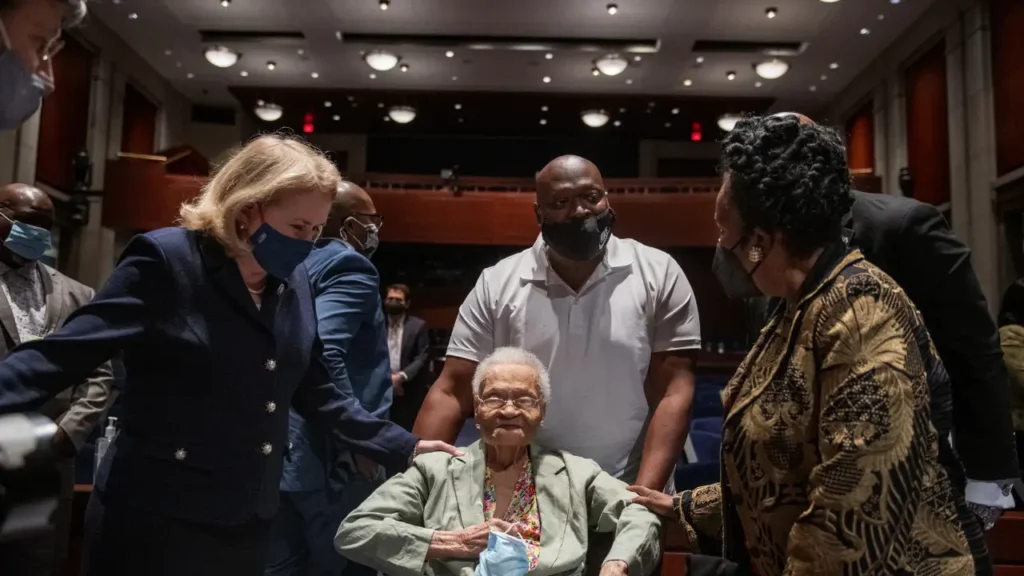
SIGNS: Tulsa Massacre Survivors Denied Justice Again After Oklahoma Supreme Court Decision

In a gut-wrenching blow to the quest for racial justice, the Oklahoma Supreme Court has dismissed a lawsuit filed by the last living survivors of the horrific 1921 Tulsa Race Massacre.
The elderly survivors, who’ve spent their entire lives seeking justice for the atrocities they endured, faced yet another setback as the court ruled their case didn’t fall under the state’s public nuisance statute.
Lessie Benningfield Randle and Viola Fletcher, both more than 100 years old, along with the late Hughes Van Ellis, who passed away last year at 102, hoped to see justice before their time ran out. They sued in 2020, aiming to hold the city of Tulsa accountable for the devastation wrought on Greenwood, also known as Black Wall Street, by a violent white mob nearly a century ago.
The massacre, which took place on May 31 and June 1, 1921, saw the looting and burning of the prosperous Black district by white rioters, many of whom were hastily deputized. As many as 300 Black residents were killed, and thousands were forced into internment camps under National Guard supervision. Today, the vibrant 30-block area is reduced to mere remnants of burnt bricks and a church basement fragment, a silent testament to the once-thriving community.
The court’s nine-member panel upheld a previous decision by a Tulsa district judge, claiming the survivors’ grievances did not meet the criteria of the public nuisance law. “Plaintiffs do not point to any physical injury to property in Greenwood rendering it uninhabitable that could be resolved by way of injunction or other civil remedy,” the court coldly noted, dismissing the case as legally insufficient despite its clear moral urgency.
The lawsuit argued that the massacre created enduring racial and economic disparities that plague Tulsa to this day. The plaintiffs sought a comprehensive accounting of the wealth and property lost during the massacre, the establishment of a hospital in North Tulsa, and a compensation fund for victims. Despite the depth of the claims, the court saw no fit for them within the public nuisance framework.
Public nuisance claims in Oklahoma have typically been employed to combat local issues like blighted properties or drug dealing. Notably, in 2019, the state used this law to secure a $465 million judgment against opioid manufacturer Johnson & Johnson. However, that decision was overturned by the Oklahoma Supreme Court just two years later, casting a long shadow over the applicability of the public nuisance law for such significant social issues.
The city of Tulsa expressed respect for the court’s decision, reaffirming its commitment to supporting the North Tulsa and Greenwood communities. However, for the survivors, the latest ruling is another bitter chapter in a nearly century-long struggle for justice and recognition. The echoes of the massacre continue to reverberate, highlighting the deep-seated racial wounds that remain unhealed.
As the survivors grapple with this legal defeat, their fight symbolizes the broader struggle for racial equity and reparations in America—a battle that remains far from over.

